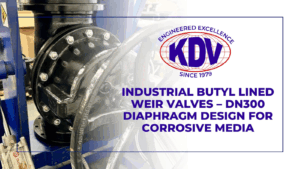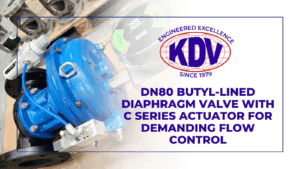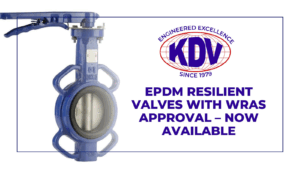EPDM Resilient Valves with WRAS Approval – Now Available
EPDM resilient seated valves have become a staple across water distribution and treatment networks due to their ability to maintain tight sealing even in demanding environments. These valves are compliant with WRAS standards, making them suitable for potable water systems across the UK and internationally.
A common issue in pipeline networks is seal degradation over time due to chemical or microbial exposure. EPDM’s resistance to such conditions ensures longer service life, minimal leakage, and easier compliance with hygiene standards.
With years of experience supplying WRAS-approved valves across Europe, our company ensures consistent stock availability and dependable technical support for plant engineers and procurement specialists alike.
Specifications and Compliance Standards
These resilient seated valves are typically supplied in DN50 to DN300 sizes and manufactured in accordance with EN558-1 Series 1 face-to-face dimensions. The EPDM lining, known for its elasticity and resistance to ageing, is vulcanised onto the valve body to prevent delamination.
Pressure ratings typically range from PN10 to PN16, depending on size, and the temperature range is generally up to +120°C. These valves are WRAS approved for potable water applications and comply with BS EN 1074-1/2 for waterworks valves. The coatings meet WRAS and DWI requirements.
For reference, a full list of valve types including resilient seated models is publicly available to help engineers distinguish the most appropriate type for their application.
Where These Valves Perform Best
WRAS-approved EPDM valves are ideal in water supply, wastewater treatment, and distribution systems. They’re frequently integrated into pumping stations, potable water reservoirs, and municipal infrastructure projects where hygiene and durability are critical.
In these environments, the resilient seated design offers benefits such as zero leakage performance, reduced wear on components, and reliable shut-off—even in the presence of minor debris or pressure fluctuations. For chemically aggressive systems, plastic-lined check valves may also be used in conjunction.
The rubber compounds used in EPDM valves conform to WRAS-approved formulations, aligned with BS6920 testing standards.
Build and Material Advantages
EPDM rubber is chosen for its performance under fluctuating pressures and temperatures. Its resistance to scale, microbial build-up, and UV exposure makes it a preferred choice in water handling systems.
The valve body, typically ductile iron, is epoxy coated internally and externally for additional corrosion protection. The wedge or disc is fully encapsulated in EPDM, ensuring even contact and sealing across the seat.
These design considerations reduce maintenance cycles, support automation with various actuator options, and ensure the valve performs consistently throughout its service life—even under intermittent flow or stagnation conditions. For automated setups, we also supply electric actuators compatible with resilient seated valves.
Installation and Maintenance Considerations
Installation is straightforward using standard PN10/PN16 flange connections. Ensure torque settings follow the manufacturer’s instructions to avoid overcompression of the seat. For water networks, periodic inspection every 12–24 months is typically sufficient. Replacement discs and seals are available ex-stock from our warehouse.
Frequently Asked Questions – EPDM Resilient Seated Valves
Q1: What makes EPDM resilient valves ideal for water applications?
They are resistant to chlorine, bacteria, and scaling, offering reliable sealing and compliance with WRAS for potable use.
Q2: Can this valve be integrated with automation systems?
Yes. These valves can be fitted with electric or pneumatic actuators and linked to PLCs for remote control.
Q3: How do these valves differ from older models?
Modern resilient valves offer improved coating, better encapsulation of the disc, and optimised seat design for longer life and reduced torque.
Q4: Are replacement parts widely available?
Yes, we maintain a full inventory of EPDM discs, bonnet seals, and stem components for rapid dispatch.
Q5: What custom options can be provided?
We can offer extended spindles, gearbox operation, locking arrangements, and flanges drilled to ANSI, JIS, or custom patterns upon request.
Case Snapshot – Yorkshire Water Project
A regional water authority in Yorkshire recently upgraded its booster station using our WRAS-approved EPDM valves. The project resulted in a 22% reduction in unplanned maintenance interventions over 12 months, citing improved seal integrity and lower torque requirements during operation.
Speak to Our Team or Request Technical Sheets
Our WRAS-approved EPDM valves stand out due to their durability, compliance, and field-proven reliability. Contact our team for a quote, or download the product specification sheet directly to assist with system design and approvals.


